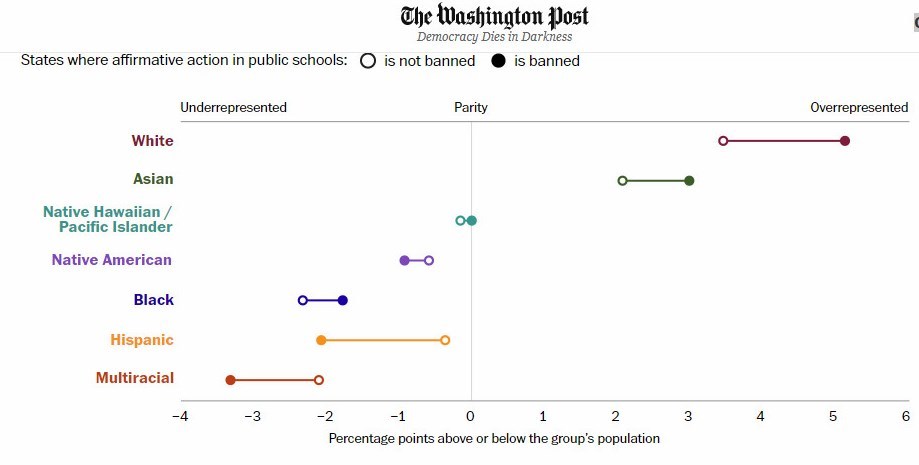Month: June 2023
“In this series of pics, she is wearing some assless pants for effect”
Gallery here
Asked by CBS News in a 2007 interview what his favorite role was to date, Arkin deadpanned: “The Kaiser roll.”
They have rejected Biden’s plan to forgive some student loan debt, saying that he exceeded his authority.
I have mixed feelings about this one.
I think Biden did exceed his authority. One man should not, with a stroke of the pen, be able to throw away hundreds of billions of dollars owed to the government of the USA. That should be the job of Congress. Biden’s claim to that authority was based on an overly broad interpretation of the HEROES Act.
Moreover, he made an end-run around the Constitution. Both houses of Congress voted to cancel Biden’s decision, but he had the power to veto their decision. Nevertheless, it is clear that Congress does not approve that forgiveness, and it should be their decision. Using this process, the President could declare any executive action he cared to, and no action of Congress could prevent him from doing so as long as he had enough votes in either house of Congress to avoid an override of his veto. This would mean that American policy would be made by a third of one house of Congress (plus one vote), since it takes 2/3 of both houses to override a veto. This is not the way laws should be made, and only the Supreme Court has the authority to settle that question, as they did.
To illustrate: If Trump regains power, he might declare an end to Obamacare by executive action. Congress would likely bristle at this blatant usurpation of their authority, and reinstate it, but Trump would veto, and would need only 146 members of the House on his side to win the day (the House needs a 290-145 vote to override a veto). That would hold true even if his veto were overridden 100-0 in the Senate. As we know from experience, it would not be difficult for Trump to find 146 blind loyalists in the House. The only remedy would be to take the case to court, where the Supremes would rule (I presume) that the president had usurped the authority of Congress, precisely the same ruling they made in this case.
I think the court took a sensible position on the merits of the case.
Standing, on the other hand, is a separate matter. It seems to me that the plantiffs in this case really had no valid standing to sue, which was the (rejected) position of the administration’s lawyers.
I am neither a lawyer nor a constitutional scholar, but it seems to me that both sides had a case for plenty of legal nit-picking.
What about the policy itself? As a taxpayer, I found it ridiculous that a family making $249,000 a year should get relief on $10,000 in debt. Those suckers should have that much in their checking accounts, especially since they have not had to make a debt payment on that loan for the last several years! Perhaps some degree of debt relief is necessary, but if so, this particular scheme didn’t seem to be the solution.
“Jo’s Cervical Cancer Trust, a United Kingdom-based non-profit, is offering alternative vocabulary for women’s genitalia to increase what the organization is saying is inclusivity in medical language.”
Gigi Hadid commands attention at the ANDAM Fashion Awards 2023 in a jaw-dropping sheer dress.
Capture:
She’s The Little Mermaid’s sister, and recently showed her booty in the first episode of Swarm (see below).
This is not from The Onion. It’s a real headline from Newsweek.
To be fair, Newsweek is not your father’s Newsweek.
This is the new Mel Gibson movie, for those who think we still need Mel Gibson movies.






The director is Michael Oblowitz. You may be thinking “Who dat?” Well, this movie is rated 5.2 at IMDb, which makes it his second best! Twenty years ago he made two Steven Seagal movies that are probably the worst of Seagal’s career (each rated 3.4), and I’m sure you understand that wasn’t easy to achieve. I mention this just to show you that Mel Gibson has fallen so far from grace that he’s starring in a Michael Oblowitz film.
Some excerpts from my reviews follow, if you’re interested.
Continue reading “Arielle Raycene full frontal and rear nudity in Confidential Informant (2023)”
Gallery here
The WAPO featured this headline:
“State affirmative action bans helped White, Asian students, hurt others”
A quick look at the data indicates that the headline should read “State affirmative action bans helped White, Black, Asian students, hurt others.”
The headline does not say that, presumably because it is extremely inconvenient for the liberal narrative to admit that Black students do better in the states that ban affirmative action.
As you can see in WAPO’s own chart (below), the main beneficiaries of AA, by far, are Hispanics, who are brought from significant underrepresentation almost all the way to population parity by Affirmative Action.
If you want to design a program that benefits Hispanics, there’s a much easier and totally constitutional way: just give admissions preference to any student who is totally fluent in more than one language. If, on the other hand, you want to extend a helping hand to Black students, the great brains at Harvard and elsewhere should be able to create a system that works better than the existing Affirmative Action models, which don’t seem to have worked at all for that purpose.
(Note: black students are still dramatically underrepresented in both groups, with or without AA, when measured as a percent of the population. In other words, even those who actively seek diversity should realize that it was probably time to shelve the existing Affirmative Action programs and replace them with some new schemes. The Supreme Court’s action will apparently have a negative impact on Hispanic students, but not so much for other minorities, who have apparently not been helped significantly by any of the existing admission models, with or without AA.)
.GIF HERE
Following in the footsteps of their abortion decision, the Supreme Court again struck down decades of legal precedent.
Affirmative Action has essentially been ruled unconstitutional for determining college admissions – for both public and private universities.
This is a case where the court is in line with public opinion.













